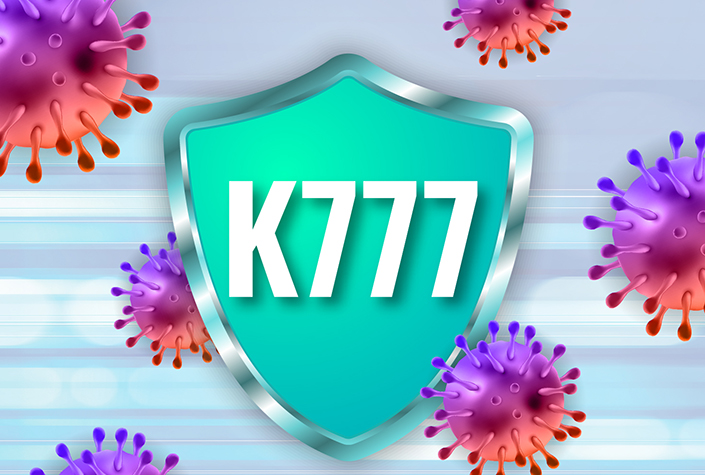Enzyme inhibitor K777 is effective against coronavirus, new study finds

An enzyme inhibitor could become a new weapon in the arsenal to fight COVID-19 as a result of collaborative research by Texas A&M University, the University of Texas Medical Branch in Galveston, the University of California, San Diego, and others.
The SARS-CoV-2 virus associated with COVID-19 is highly contagious and has led to a global pandemic. To date, more than 130 million people worldwide have been infected and more than 2.8 million have died from COVID-19.
The study, recently published on the ACS Chemical Biology website, shows that small concentrations of an enzyme inhibitor called K777 strongly impede the infection of several cell lines by SARS-CoV-2, which causes COVID-19. It also demonstrated the efficacy of K777 in reducing the ability of the virus to infect host cell lines without causing harm to the host cells.
The study’s primary author is Drake Mellott, a doctoral candidate in the Texas A&M Department of Biochemistry and Biophysics in the College of Agriculture and Life Sciences. The study’s senior authors are Thomas Meek, a professor in the Department of Biochemistry and Biophysics, and James Mckerrow, dean of the Skaggs School of Pharmacy and Pharmaceutical Sciences at UC San Diego. Another key author is Chien-Te Tseng, professor of microbiology and immunology, University of Texas Medical Branch.
K777 has been approved by the Food and Drug Administration as a Phase II clinical-stage compound.
Meek said while a number of vaccines can now largely prevent infection by the virus, medicines are still needed to treat those who become infected and develop severe symptoms.
“We also need therapies that may be able to address the potential emergence of strains that may not respond well to current vaccines,” he said.
A few examples of using such a strategy have already been employed, including the FDA’s approval of the antiviral drug remdesivir and an emergency use authorization for monoclonal antibodies in treating more serious cases of COVID-19.
“Since 2014, our lab’s mission has been to investigate and understand the chemical mechanisms of enzymes that are validated drug targets, and to utilize these mechanisms to develop rationally designed inhibitors and inactivators of these enzymes,” Meek said. “Our goal has been to use synthetic and medicinal chemistry, protein expression, crystallography, molecular modeling, mechanistic enzymology and inhibitor characterization to find novel ways to address diseases. The diseases we have been focusing on include tuberculosis, African sleeping sickness, Chagas disease, malaria and now COVID-19.”
Research funding for the study was provided in part by the National Institutes of Health, Texas A&M AgriLife Research, the Texas A&M University System, the Burroughs Wellcome Fund, and Selva Therapeutics, Inc.

